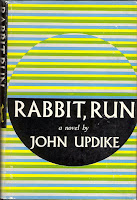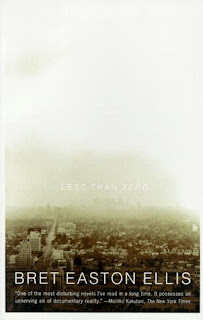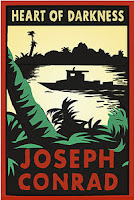There’s an old eastern saying, something like “Conversation dries up after a few days without reading.” Today we may think we’re getting by with TV and Interweb videos and twitter feeds but, the truth is, conversation is drying up.
You need to read. The unfortunate side effect of teachers shoving books down our throats growing up is that a lot of us never got over the perception of reading as a punishment so now only 1 in 4 American adults read at least one book a year that’s not part of their job or school. That’s pathetic.

So the main reason I’m bringing this up is that a great book is coming out tomorrow,
Steven John’sTHREE A.M. This book is why you need to start reading. It gets you out of your everyday air conditioned lives, spent mostly in spinning chairs plopping plastic buttons and staring at sterile screens, and puts you into a dystopian future of eternal darkness, living the life of a low-rent dick with an endless thirst for whiskey and dingy bars, where he meets a femme fatale who, as they always do, fucks up his world. But this isn’t the average detective novel; it’s like James Elroy wrote the first half, then dropped some acid and in the middle of tripping balls took it in a completely unexpected direction, ratcheting up the suspense and the mind-blowing revelations one after the next.
But you might be a guy who sees no point in reading. You watch movies. Live a good life. Keep up with the news. What the fuck use is a book?
To start off, books have evolved alongside us. The stories passed down orally until they could be captured in novels give us hints at who we are, not only as individuals, not only by recording our history but in general who we are as part of this massive galactic experiment known as “Humanity”. Just read
HERO WITH A THOUSAND FACES and you’ll discover that most of our stories, from the Bible to fairy tales to the Greeks – all come from the same place, from the psychological ether wherein our collective subconscious has cultivated and evolved the exact same impression of life, humanity, and order. What I mean by this is that we all see the same heroes and villains, all see the same desires and fears represented by the basest impressions encoded in our minds long before we even understand they’re there. Like tattoos inked into our skulls in utero. We respond to good stories because, at a certain level, good stories are about us. They’re guides for how to move on in life, for knowing what role we play and how to attack adversity and achieve success on this maniacal one-way ride. As a writer, I often feel more like a scientist than an artist – that is, I take the elements, the characters and settings and variables and ancillaries and whatnot, throw them together, and watch what happens. If the people are made real and the situations occur according to the laws of nature, the book will unravel itself in a believable fashion. So by seeing how characters handle a situation, we get the opportunity to test drive that situation ourselves – whether it’s a moral tale about a man who leaves his wife for his secretary only to find he misses his wife while the secretary and her annoying hipster friends won’t stop dancing around to
M83 while cheesing their fucking tits off or a classic hero’s journey in which an average man is thrust into extraordinary circumstances and we have to see how somebody like a hobbit can navigate a world of dragons and soldiers and fantastical demons thanks to the help of his friends and simple persistence. From the one we learn to really evaluate what we want from our lives; in the other we are inspired to hang in there, be good, and never quit.
Good stories, to simplify things, are the closest a person can come to having a guidebook to life. And since life is a “choose your own adventure book” with infinite options, there are lots of stories applicable to it. And the more you read and indulge in, the more varied and full your guidebook is. But wait, you watch movies, why should you waste anywhere from a few hours to a month reading a book? It’s simple – because try all you might, you will never penetrate the silver screen.
You watch a movie. It draws you in, engages you but there’s always a division between you and the film. It’s hard to put yourself into the shoes of the protagonist when you see him or her on the screen doing things (unless you took a few mushrooms, went to see
ALICE IN WONDERLAND and halfway through, as you peak, think you’re actually in Wonderland). The actors will always look better than you could imagine yourself looking, and you’ll always see the edge, the place where the movie screen ends and the real world begins. You always know you’re safe or bored beyond that edge. And even more, you always know the adventure will end in a few hours and you’ll go back to being you. In spite of all its innovations and special effects, the strides made by directors and producers and actors and writers as the craft is taken to its apex time and time again, the simple fact is that you will never confuse the movie with your own thoughts. Maybe when you’re so old you can’t remember which way is up you might confuse your life with movie plots, stumble around muttering about how your first wife was put into a coma in a Hawaiian speedboat race or about how you remember running through the woods as a half-naked blue guy with 5-foot legs and a pet pterodactyl. But for the most part, and for right now, there will always be a divide.
This isn’t so with books. First off you inhabit their worlds much longer than a movie. Some books, like
ANNA KARENINA or
ATLAS SHRUGGED or
BROTHERS KARAMAZOV, long, dense classics can hold you for months so that by the end you feel like you lose good friends when it ends. Others, like
FEAR AND LOATHING IN LAS VEGAS, fly quickly but because of the wild pace into which you were immersed you forget you don’t live there, you feel breathless when it finally drops you off; you forget, briefly, that anything is happening beyond the page. A movie occurs on the screen. A book occurs in your mind. All a novel is, physically, is a series of arbitrary marks assigned some value which are collected together into longer strings of these marks which become chunks of these marks which finally are pasted together with a certain rhythm and methodry which means nothing without the interpreters. It is in our heads that we interpret these marks into letters, letters into words, words into sentences, sentences into paragraphs, paragraphs into pages, pages into chapters, chapters into plotlines, plotlines into a story. Our heads become the projector and the silver screen and the art director and the casting director. We don’t watch these stories; to a certain extent, we create them and in that way do they become more internal – because they lived inside us. No two people would create the same book the same way in their heads and as such it becomes individualized. Often books delve into the character’s thoughts and dreams and when you’re reading somebody else’s thoughts and dreams inside your head, essentially making your thoughts somebody else’s thoughts, it’s almost impossible to not feel that connection, to not feel like, at least for a bit, you’re living inside somebody else’s head; or, transversely, somebody else is living inside yours.
Anne Tyler said “I write because I want to live other lives.” And that’s true. But reading will do the same thing, albeit with less control on your part, though it's infinitely easier and less time-consuming to read a book versus to write one.
Now don’t get me wrong, I love movies. I moved to L.A. to work in movies and Kyle and I write screenplays when not blogging about being ambitious men and such. But movies and books compliment each other, like science and religion in Stephen Jay Gould’s brilliant article
NONOVERLAPPING MAGISTERIA. One answers one series of questions and personal needs and the other is there to reach the places beyond. But you need both.
So how does a man start? What books should you read? To start,
pre-order THREE AM. Then, check
here for a list of a few novels that all men should read at some point in their lives and which you, feeling ambitious, should try to read this year (1 a month).
- Ryan














